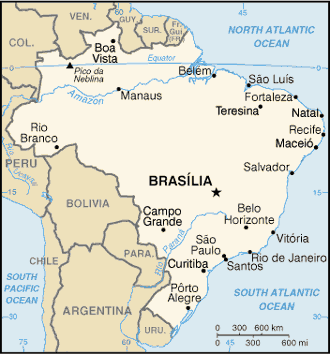After a dramatic decrease in dengue fever cases in 2014 when between some 600,000 cases were reported, Brazil has once again topped the one million mark in cases of the mosquito borne virus.

As of June 12, about 1,026,000 probable and confirmed cases have been reported. In 2013, the count exceeded 1.4 million cases.
Concerning cases of severe dengue and fatalities in 2015 through the 21st week, the country has reported 736 and 378, respectively. In addition to Colombia and Mexico, Brazil is the only county to see all four dengue serotypes circulating in their population.
Dengue is an infectious disease caused by the dengue virus (DENV). There are 4 serotypes called DENV-1, DENV-2, DENV-3 and DENV-4. Infection with one serotype produces lifelong immunity against that serotype reinfection. Successive infection with two different serotypes is a risk factor for developing the severe forms of the disease.
All serotypes have been isolated in the Americas. In several countries they circulate simultaneously, creating a serious risk for an epidemic.
The Aedes aegypti and Aedes albopictus mosquitoes are transmitters of dengue. The Aedes aegypti female mosquitos are the main source of dengue transmission. These species bite during the day, with the most active feeding period 2 hours before and after dawn and dusk.
Related: Zika virus is the latest Aedes transmitted infection reported in Brazil


4 thoughts on “Brazil dengue fever case count exceeds 1 million”